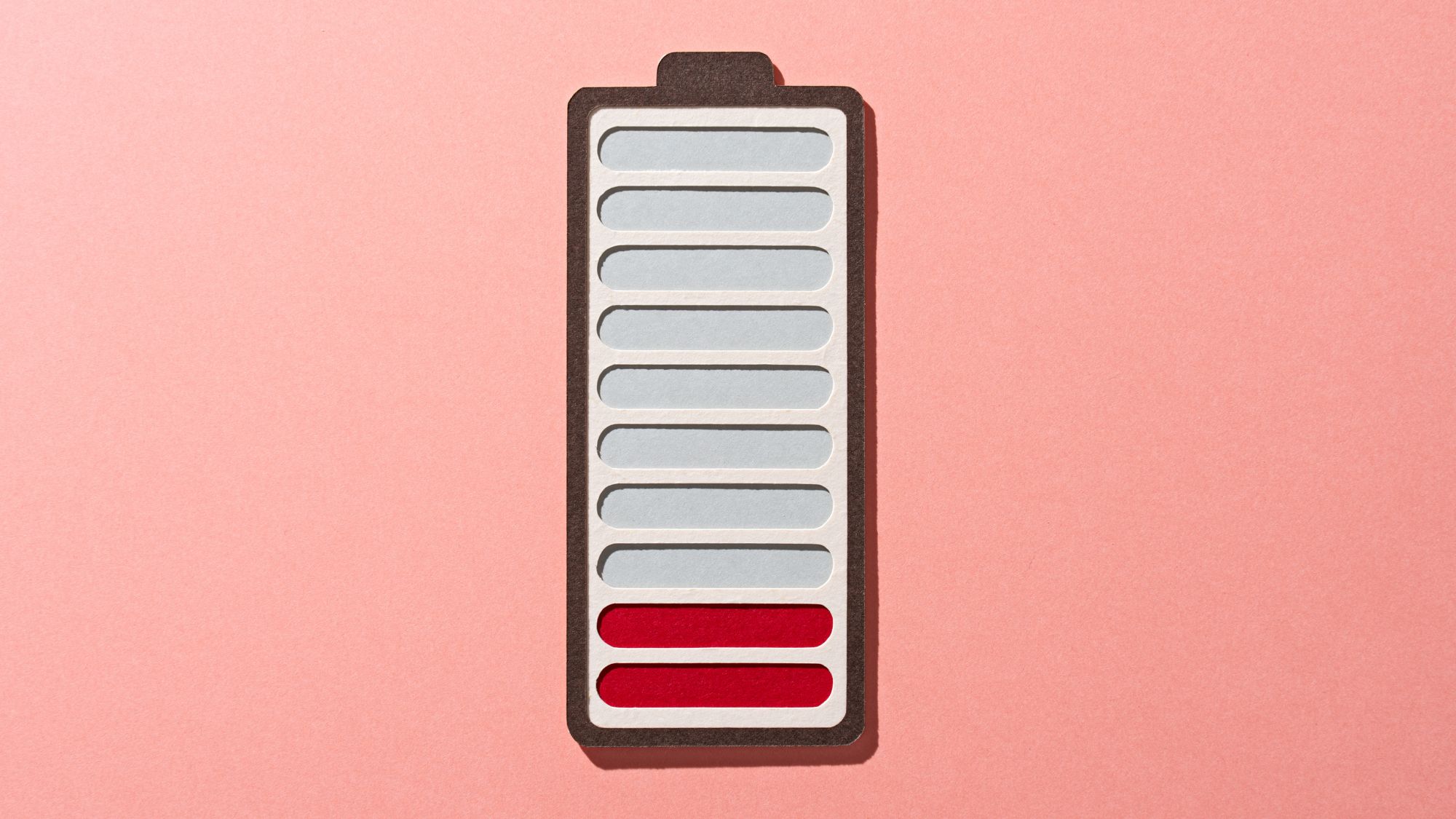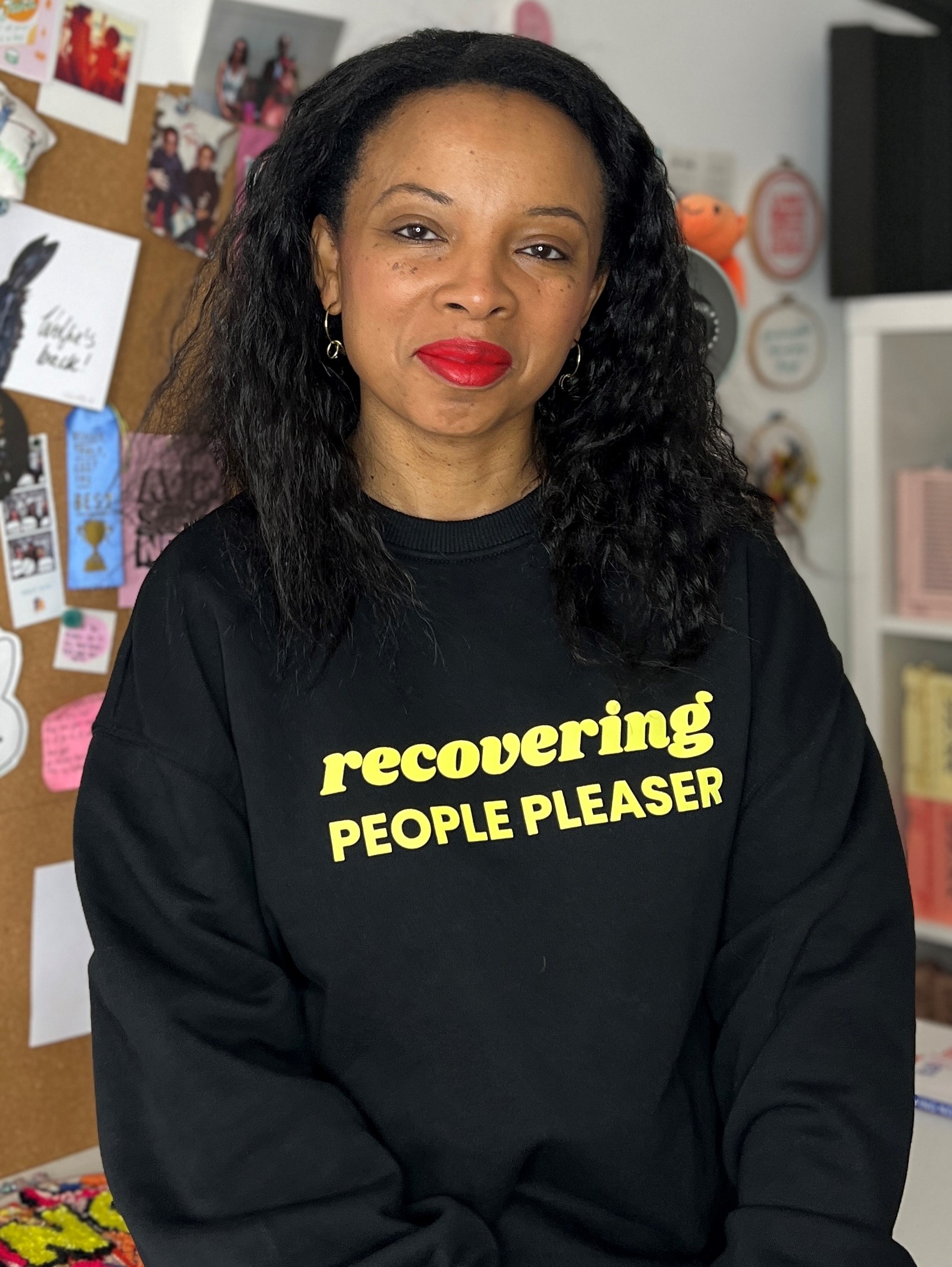How to say ‘no’ to anything
It’s time to stop people-pleasing: 6 tips for finding the joy in saying ‘no’


I know I'm not the only one cancelling plans this summer. A depressing survey from Anna Williamson and FREENOW UK reveals that 59% of us say we often feel too tired for after-work hangouts despite 66% of the 2,000 surveyed adults stressing the importance of a good work-life balance. Clearly, we are not practising what we preach *hangs head in shame*.
While I admit that I do get an indulgent little buzz whenever I cancel a plan (or better yet, when a friend is the one to cancel), it's often quickly overtaken by an overwhelming sense of guilt. I hate letting people down, but apparently, I hate saying 'no' just as much.
So what's a girl to do? In my case, it usually means agreeing to whatever is asked of me (dinner in central London on a Monday when I have a meeting at 8 am the next day? Sure! An early-morning yoga and then a quick lap around Victoria Park despite not having ran in 7 years? Sign me up!) and then almost instantly regretting it and quietly hoping that my dinner date/running buddy/random acquaintance I met at an internship ten years ago, etc., etc. cancels before I do.
This does not make for a harmonious life. As a people-pleasing Libra, my inability to set boundaries of any description reaches a fever pitch in the summer when plans are plentiful and saying 'yes' is the theme of the season. But are we actually enjoying ourselves, or do we just feel like we should be enjoying ourselves?
It's a question Natalie Lue, founder of the long-running self-help site Baggage Reclaim, had to ask herself when on the brink of burnout. Here, the author of the aptly-named book The Joy of Saying No recounts her journey to getting comfortable calling it quits on always saying 'yes' and shares her top 6 tips for how to say 'no'—and mean it.
By Natalie Lue

Natalie Lue
As a kid, summers felt like complete freedom and joy. July birthday, free gaff while my parents holidayed with my younger siblings, hitchhiking to Brittas Bay to go camping, and raving my way through clubs. I said yes to everything and had a blast.
Celebrity news, beauty, fashion advice, and fascinating features, delivered straight to your inbox!
By my late twenties, though, summers were tiring and expensive. Holidays, weddings, hen dos, going out drinking several nights a week — it felt like I had to make the summer count, but I didn’t realise that this mostly came from a place of people pleasing. I put other people’s needs, desires, expectations, feelings and opinions ahead of mine to gain attention, affection, approval, love and validation and to avoid conflict, criticism, rejection, loss and disappointment.
When I was 28, an autoimmune disease threatened my life. I had no choice but to pump the brakes on my (and other people’s) expectations of what I should do with my summers. Focusing on healing, not drinking, dietary changes, and putting my needs first meant I slowed down and listened to my body (and bank account) for the first time. I was officially a recovering people pleaser.
Fast-forward to my thirties — I was with my now husband, a parent to two young girls, and juggling a self-employed writing career. It took a few years into the school holidays for me to come face to face with unrealistic expectations again. I was trying to be the mother who gives her daughters brilliant summers while also doing too much in my quest to be a good partner, friend, daughter, and business owner.
A combination of noticing that my daughters didn’t want or need that pace of summer and the realisation that I spent September in an exhausted fog gave way to more spacious summers. I’m far more intentional with my yeses and nos, which has continued into my forties.
For some of us, as soon as the weather picks up, anxiety kicks in about our bodies and their supposed readiness for summer, budgets, and bandwidths. Even without these anxieties, we might heavily commit ourselves because, you know, it’s summer. We remember how we used to feel and continue as if we’re the same, even if our realities say otherwise. Some of us feel pressure to have fun all the time, which might not match our energy levels, bank balances, personalities, or work/home situations. Throw in social media, and it’s easy to get sucked into feeling less-than and like we have to cater to other people’s ideas of what our summers should be. ‘Should’ implies expectations and obligations, though, and they suck the fun out of things.
I know it might sound counterintuitive to the spirit of summer, but you are allowed to say no, including weddings, hen dos or holidays you can’t afford or don’t want to go on. Saying no doesn’t make you a killjoy or not a good friend/partner/parent/daughter/worker or whatever else. As I discovered, your relationship with ‘no’ affects others around you as they get swept up in your inauthentic or ill-considered ‘yes’.
When you try to do everything, something else has to give, and that tends to be your energy levels, health, bank balance, and the intimacy of your relationships. ‘Yes’ puts you on the hook for things because it commits you, so you need to be discerning to protect your priorities and well-being.
6 tips to help you say ‘No’
1. Notice people-pleaser feelings
Anxiety, resentment, guilt, overwhelm, frustration, overload, helplessness, powerlessness, low or burnt-out. These feelings communicate that you’ve said yes to something for the wrong reasons or are approaching something in a way that isn’t taking your needs into account. Anything that brings up these feelings is a clear signal to say no or to amend your yes to a healthier one.
2. Identify your priorities and how you want your summer to look
Note, schedule, and stick to it. This is particularly helpful if you tend to say yes on the spot or feel that your summer gets taken over by everyone else’s needs.
3. Connect with your ‘why’
Notice where you’re ‘shoulding’ or shaming yourself into something to avoid a negative outcome or control how you appear. These are not healthy, authentic reasons to say yes and are guaranteed to lead to people-pleaser feelings. Make it a desire, or say no.
4. Be honest with yourself about your bandwidth and use this to guide your no
You only have so much time, energy and effort, and these affect how you feel, which then affects your capacity. Keep checking in with your schedule, energy levels, and existing commitments. “I don’t have the bandwidth for that” is remarkably effective.
5. Get the ‘no’ out of the way
If you know you’re not going to make it to something, don’t say yes and then cancel at the last minute or drag out declining the invite. People prefer to know where they stand, and it’s also understood that most people already have lots of things going on.
6. Depersonalise no
News flash, not everyone is saying yes to you this summer.
Natalie Lue is an author, podcaster, speaker and founder of the long-running self-help blog Baggage Reclaim. Natalie’s latest book, The Joy of Saying No, is out now.

Mischa Anouk Smith is the News and Features Editor of Marie Claire UK.
From personal essays to purpose-driven stories, reported studies, and interviews with celebrities like Rosie Huntington-Whiteley and designers including Dries Van Noten, Mischa has been featured in publications such as Refinery29, Stylist and Dazed. Her work explores what it means to be a woman today and sits at the intersection of culture and style. In the spirit of eclecticism, she has also written about NFTs, mental health and the rise of AI bands.